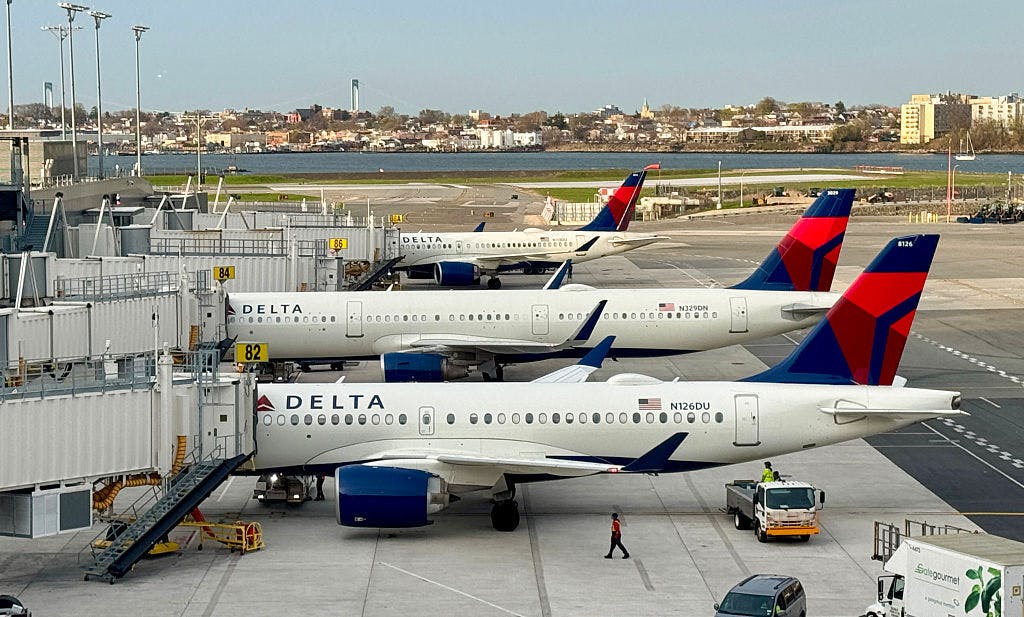Delta surges as it reinstates a full-year outlook and says demand is stabilizing
Delta reported its second-quarter earnings on Thursday.
Delta Air Lines began the year saying that it had the potential to be its best fiscal year in a century. That dream fizzled out within three months amid “uncertainty around global trade.”
The airline reported its second-quarter earnings on Thursday morning, and things appear to have stabilized — though “best ever” is probably still off the table.
Delta reinstated its full-year earnings outlook, forecasting $5.25 to $6.25 a share. That’s down from the beginning of the year, when it guided for more than $7.35 per share.
Still, investors cheered the return to having some idea about how the year will go. Delta shares surged more than 11% in premarket trading.
The airline (America’s largest) posted operating revenue of $15.51 billion, up 1% from the same period last year and above analyst estimates of $15.46 billion. Delta’s earnings came in at $2.10 per share, better than expected earnings of $2.06 per share.
“Through the quarter, demand trends stabilized at levels that are flat to last year and we continued to see resilience in our diverse, high-margin revenue streams,” Delta President Glen Hauenstein said.
Passenger revenue was relatively flat year over year, at $13.87 billion. Premium tickets continued to grow, up 5% to $6.35 billion. Main cabin ticket sales fell 5%.
In Delta’s credit card business, where it makes substantially higher profit margins compared to its business of flying people around, points continued to pay. The carrier pulled in another $2 billion from American Express on the quarter, up 10% from the same period last year. Last year, Delta made $7.4 billion in credit card revenue.
